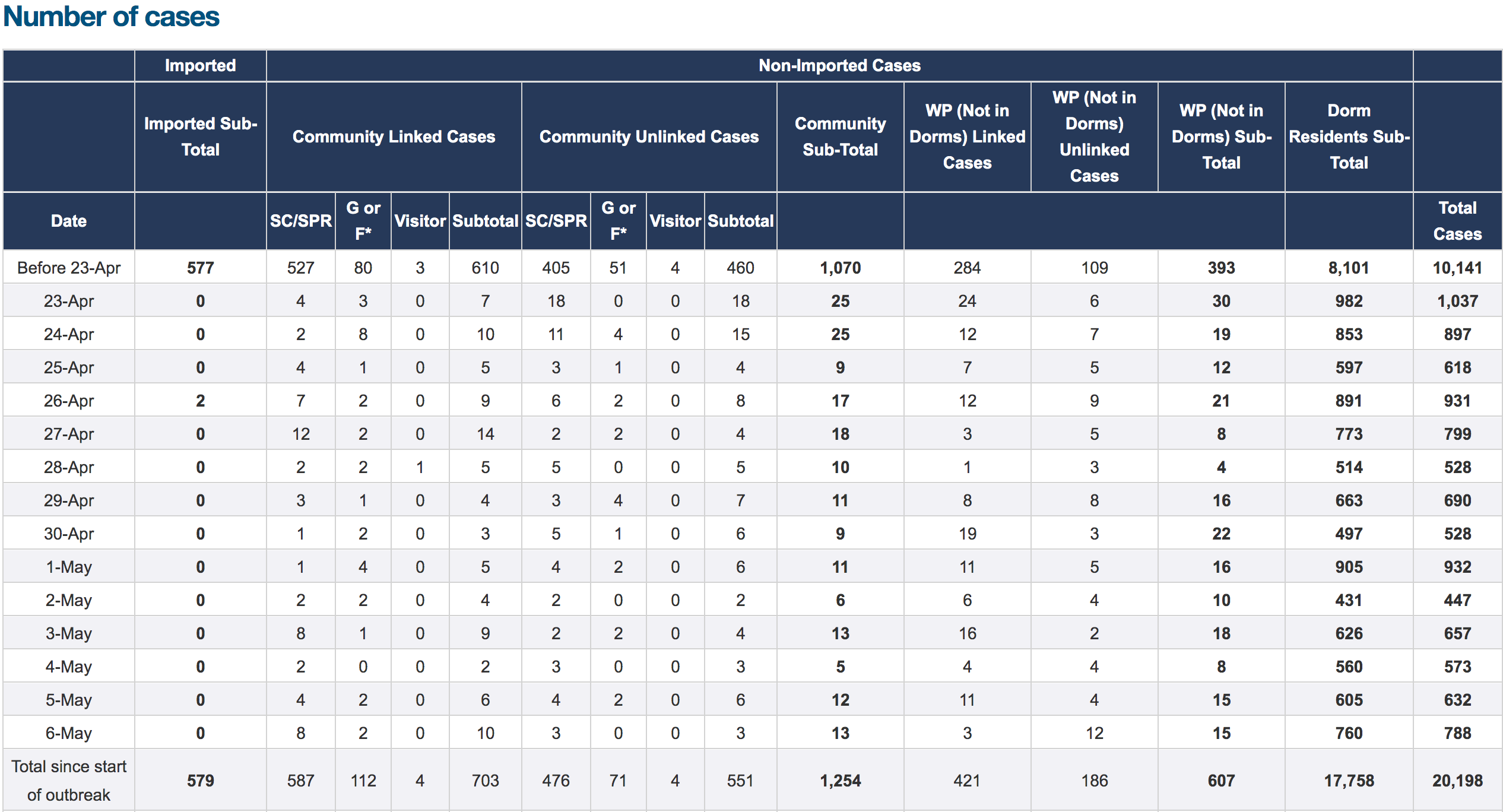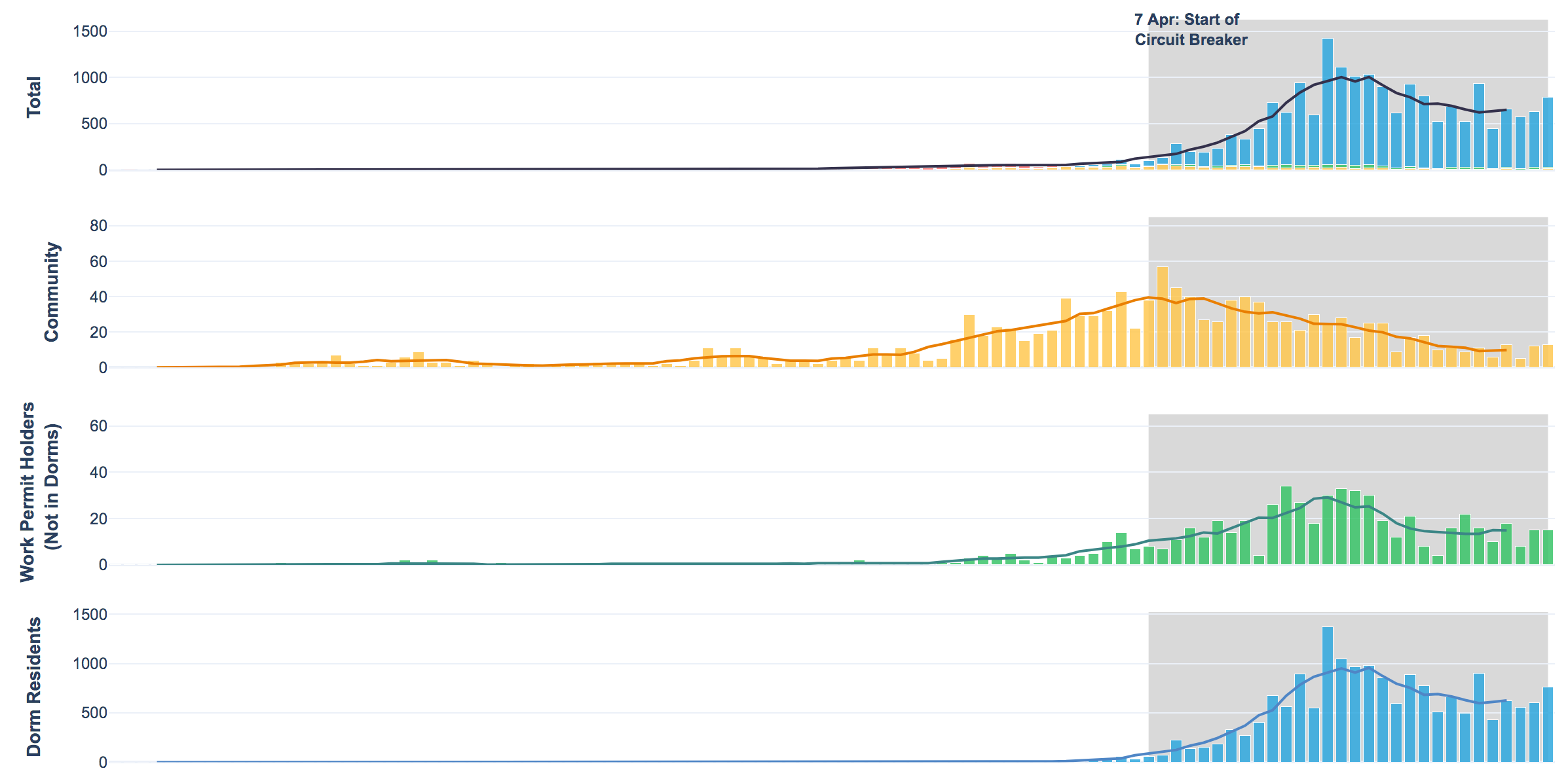The total number of Covid-19 cases in Singapore has passed the 20,000 mark on May 6, 2020.
Following the largest single-day spike at 1,426 new cases on April 20, the daily momentum appears to have peaked in the past two weeks.
 Via Covid-19 situation report.
Via Covid-19 situation report.
On May 7, 741 cases were reported with five cases that are Singaporeans or Permanent Residents.
Projection of up to 40,000 cases by end of May
According to The Straits Times, Associate Professor Alex Cook, vice-dean of research at the National University of Singapore's (NUS) Saw Swee Hock School of Public Health, projected the total number of cases in Singapore to hit 30,000 to 40,000 by the end of May based on infectious disease modelling.
Cook also added that while the numbers are rising, it is increasing "in a more controlled manner".
 Epidemic curves via Covid-19 situation report show rate of infection slowing down across categories.
Epidemic curves via Covid-19 situation report show rate of infection slowing down across categories.
For Singapore to hit 30,000 cases by end of May, that means an average of 378 cases per day in the next three weeks.
For Singapore to hit 40,000 cases, it will mean an average of around 800 cases.
The average number of new cases in the first week of May is around 680.
How accurate is this projection?
In a webinar hosted by NUS School of Medicine on May 7, Cook also explained how the mathematical models derived such projections.
This included a previous projection that Singapore will hit 20,000 cases by end of April.
Cook admitted that while data might not be ideal during emerging epidemics like Covid-19, the scientists will have to make do and adapt accordingly when new information arises in the country.
Cook said that the epidemic behaviours vary for different phases of the Covid-19 outbreak in Singapore.
For example, the initial model was unable to make a very good forecast as they did not expect the vast volume of returning Singaporeans from overseas overlapping with imported cases from Europe.
For the recent surge of cases due to the infection in foreign workers dormitories, Cook said the initial spread looks like a typical epidemic model.
However, the epidemic behaviour is changing again with aggressive testing and isolation facilities created to separate those infected from the healthy ones.
These measures will have impact on the spread of Covid-19 in reality and so they do see that the number is diverging more and more from the scientists' projection.
The estimate of 30,000 to 40,000 cases was derived after taking into consideration the social distancing measures put in place by the government, Cook said.
Top photo via LTA/Facebook
If you like what you read, follow us on Facebook, Instagram, Twitter and Telegram to get the latest updates.
